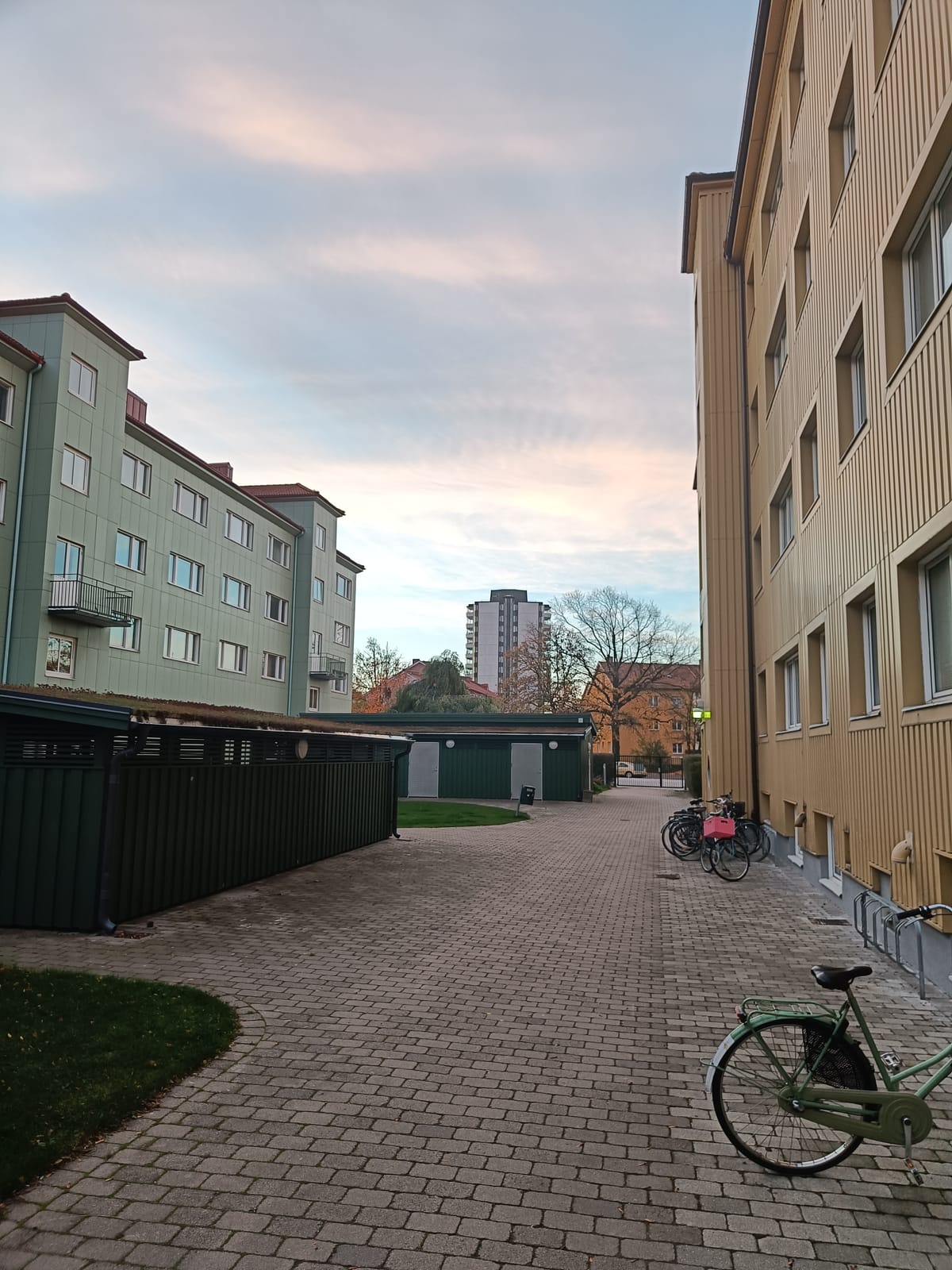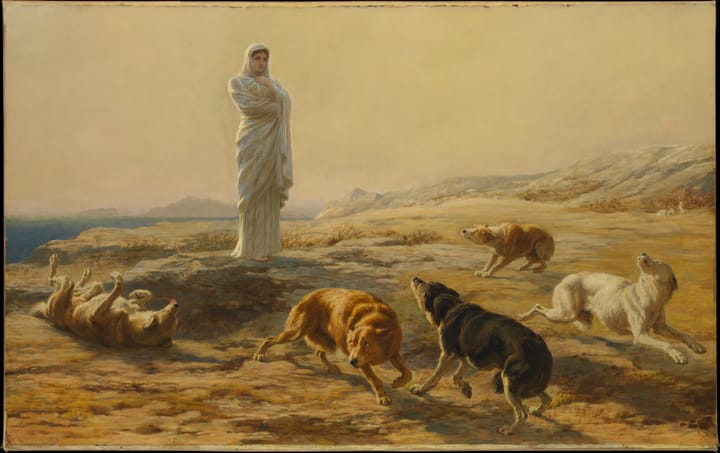week 44 / 2024
Facing the inevitable, like Don Corleone in a roomful of turn-coat lieutenants—certo non mi hai tradito per WEEKNOTES? This week, expectations are downrated, and essays are architecture.

November. It’s November?!
Yup, it’s November. Welcome back to WEEKNOTES at Worldbuilding Agency—but before we continue, here is an important Attention Conservation Notice:
If you’re enjoying the essays and interviews I’m publishing here, but are finding these weeknotes to be a little too cinéma vérité, never fear. I’ve made some changes so that you can now subscribe (or unsubscribe!) to these two aspects of the journal separately. Just log in to your user account, tick (or untick) the options as appropriate, and you’ll only receive the emails you actually want to receive.
Apologies, I should have done that sooner! OK, on with the show.
The bathroom renovation saga is still very much ongoing, and so the storyboard outline for this week would be a kind of inversion of the traditional hero’s journey, in which someone struggles against the inevitable before finally coming to the obvious conclusion: that ambitious plans to slay the dragon and save the kingdom are probably best reduced in scope until the castle armoury is capable of providing equipment, rations and adventuring companions.
More plainly, I’ve stressed myself out quite seriously trying to do a regular week’s work, and haven’t come close to achieving that end. Getting to Friday and finding myself twice as fried as usual for barely half the output is indicative of a failed strategy.
I’m told we’re past the most disruptive phases of the project, so I’m hoping next week will go rather better, but I’m also downrating my expectations in advance. Given my apartment is also usually my workplace, I should have done that a couple of weeks ago.
Selah—we live, and we learn. On the better days, we sometimes do both at once!
ticked off
- Zero hours of project work. (I’m doing my best not to shame myself for this, and I hope you are reading charitably, too.)
- Five hours outlining and writing this week’s case-study essay. (This was me taking the lemons that were the unfunded bid for PROJECT HOTPLATE and turning them into what I hope is a refreshing glass of lemonade. It certainly made me feel better, just as a couple of friends suggested it might—so thanks, Jay and Jared, for responding to my Eeyore moment in the appropriate manner.)
- Ten hours of admyn, including a long overdue email binge. (Proof that I should perhaps be less hard on myself; I did manage to squeeze in a bunch of stuff that was suited to short bursts of attention. That email pile isn’t quite reduced to the size I want it, though… )
- Ten hours of undirected writing and reading, because that’s how we do things downtown.
kinmaking
Absolute highlight of the working week was an hour catching up with narratological high priestess and all-round excellent human being Genevieve Lively.
One of the many indicators of Genevieve’s excellence (as I see it) is her willingness to put up with me spending more than half of the conversation asking poorly-formed questions about linguistics, but we also spent a good bit of time discussing the use (or not) of the proleptic future tense in science fiction, foresight, politics and technology.
(This is exactly the sort of conversation that made academia an appealing environment for me, and so it’s a great comfort to know that I can still enjoy them now I’m dwelling outside the sacred grove.)
I also spent an hour watching a demo of an “AI Futurist” that the people at Futures Platform have deployed in recent months. Veteran readers will know that I am deeply on the sceptical/cynical side of the “AI” discourse, and nothing I saw here gave me any cause to change my mind. It seems mostly to be a conversational front end to a customisable database of general horizon-scan content, and while there may be a business case for that—whether enduring or momentary—I don’t see it as competition for the sort of work I do, which is much more bespoke and relational in its approach.
My notes from the session include a formulation I’m quite pleased with: “an LLM is a library without a librarian”. I think the idea is worth writing up at length, so keep an eye out for that in weeks to come, but here’s the hook: the first thing you learn as a human working in a library is that the average enquirer doesn’t fully know what it is that they want to know, and that your job is to help them refine the question before sending them to the stacks.
(I will observe that the main advice provided regarding prompting during the demo was that you should always say “please”, which I found hilarious for reasons I can’t fully explain. I will also observe in passing that the new line from the Very Serious “AI” Men of LinkedIn is “AI won’t replace you, but someone who knows how to use AI might replace you”, which—credit where it’s due—is a masterclass in pivoting your rhetoric while retaining a poorly veiled sense of threat as the primary motivator.)
reading
It has not been a great week for reading, really. I’ve been nibbling away at the first weighty chapter of Daniel Chandler’s Semiotics: The Basics, though most of what it has taught me so far is that reading introductory semiotics texts is a pretty good way to turn tiredness into full-blown sleep. I want to give it better attention than I currently have available.
On the other hand, John Boorman’s novelisation of his own cult-classic movie, Zardoz (recently reissued by Repeater Books) is ideal reading for such circumstances, as it’s a sort of vaguely hallucinatory stream-of-consciousness narrative in a world where nothing’s quite as its protagonist has been conditioned to expect. It’s very Seventies, in other words… and almost impossible to read without seeing in your mind’s eye a very hirsute Sean Connery running around in a red leather jockstrap.
(Quite why I’ve found that image so conducive to going quietly to sleep is a question I am not willing or able to answer at this time.)
a clipping
A second shout-out to Jay Springett for being the source of this week’s clipping, which may not be particularly futures-y in orientation—not at all, really—but is particularly wonderful as a piece of writing about writing.
Elisa Gabbert’s “The Essay as Realm” is an essay about writing essays, which takes architecture and interior design as its central metaphor. It’s one of those pieces where you try to find a gemstone pull-quote, but end up wanting to quote the whole damned thing—a sure sign of a really rich bit of writing. So you should take the following not as a summary, but as a sample:
I think this is important: memories and ideas happen in a place. An essay is a place for ideas; it has to feel like a place. It has to give one the feeling of entering a room.
When I messaged Jay back to praise the piece and thank him for sending it, he noted that Gabbert has almost zero online presence, beyond her poetry column at the NYT and a website that lists her published books. I can’t help but feel maybe there’s a lesson here.
Right, that’s all for this week. Keep in touch, and thanks for reading, as always.
This has been the Worldbuilding Agency weeknotes for Week 44 of 2024. Thanks for reading! If you've enjoyed them, it's free to subscribe, but please consider supporting this research journal with a small monthly payment. You'll get access to the occasional bit of Exclusive Content™, and you'll be funding free subscriptions for those with fewer monetary resources, but first and foremost you'll get the warm glow that only ever comes from enabling fully independent and climate-focussed foresight research to continue.
(If you are already subscribed, please send to a friend who you think might also like it!)
Have a good weekend.





Comments ()